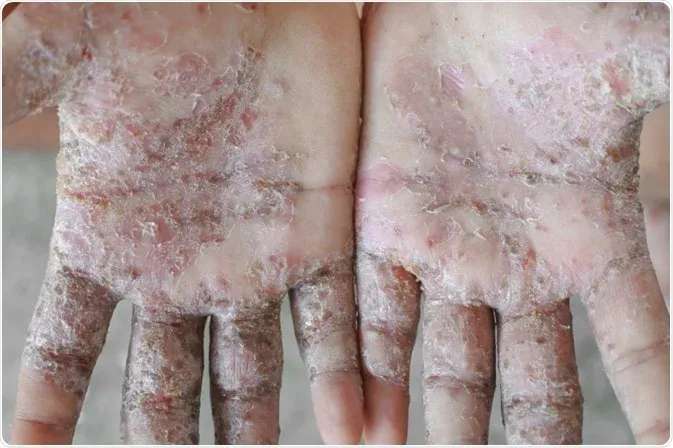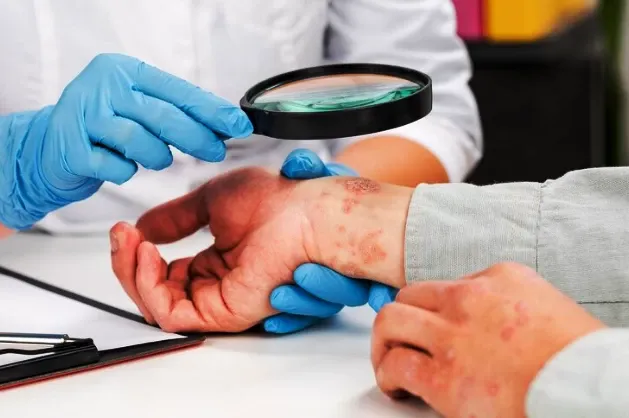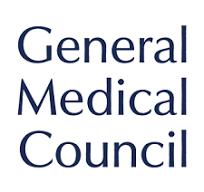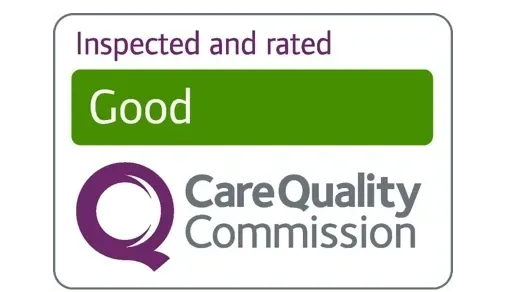What Is Scabies?
Scabies is a skin infestation caused by the human itch mite (Sarcoptes scabiei), which burrows into the top layer of the skin to lay eggs. The resulting allergic reaction causes itchiness, inflammation, and a visible rash.
Itching – usually worse at night
Red bumps or blisters – sometimes in a line
Burrows – thin, thread-like marks
Common areas – between fingers, wrists, waistline, genitals
It’s not caused by poor hygiene and can affect anyone, regardless of lifestyle or age. Misdiagnosis is common, as it may resemble conditions like eczema or hives, so a professional diagnosis is essential.

How We Diagnose & Treat Scabies
Expert Diagnosis
Scabies can look similar to other itchy rashes, so an accurate diagnosis is vital. At Revitalise London, our GMC-certified dermatologists will carefully examine your skin, focusing on the characteristic rash, burrows, and areas of intense itching. We’ll ask about your symptoms, recent skin-to-skin contact, and whether anyone close to you has similar issues.
In certain cases, we use dermatoscopy or take a gentle skin scraping to identify mites, eggs, or faecal matter under a microscope, providing a clear and confirmed diagnosis before treatment begins.

Our 4-Step Scabies Management Process
- Consultation
Your journey begins with a private consultation, where your dermatologist will assess your skin in detail and discuss your symptoms, as well as those of any close contacts. - Diagnosis & Planning
Once scabies is confirmed, we create a tailored treatment plan designed to treat you and all members of your household or close contacts simultaneously. This is an essential step to stopping the spread. - Treatment Initiation
We prescribe the most effective medication for your case, typically a prescription-strength topical cream or, in certain situations, oral tablets. You’ll receive clear instructions on how and when to apply or take the medication for the best results. - Aftercare & Hygiene Advice
We guide you through the steps needed to prevent re-infestation, including household hygiene measures and decontamination of clothing, bedding, and towels. Follow-up support is available to ensure the treatment has been fully successful.
Scabies Treatments We Offer
Topical Permethrin 5%
This first-line treatment is applied to the entire body from the neck down (including under nails) and left on overnight. A second application is usually required seven days later to kill newly hatched mites.
Oral Ivermectin
For severe, resistant, or crusted scabies, or when topical creams are impractical, we may prescribe oral ivermectin. This is especially effective for treating large groups or widespread infestations in a convenient tablet form.
Household Decontamination
To break the life cycle of the mite, we recommend washing all clothing, bedding, and towels used in the past 72 hours in hot water (≥50°C) and drying them on a high heat. Items that cannot be washed should be sealed in an airtight plastic bag for at least 72 hours.
By treating both you and your close contacts, while addressing the environment, we ensure the infestation is fully eliminated, helping you return quickly to comfort and confidence.
Why Choose Revitalise London?
We combine clinical excellence with a patient-first approach. Here’s why hundreds trust us:
Nathalie Emmanuel
Actress - Game of Thrones Star
Had a wonderful experience with Dr Ken and his staff with my forehead lipoma removal. Thorough in planning before the procedure and so far, l've had a great experience with aftercare. When I had any questions there was always someone available to answer them.

Our Medical Team
Meet the experienced professionals who will provide your care
Our Accreditations
Trusted by healthcare regulators and professional bodies for maintaining the highest standards of medical care and patient safety.



🛡️ Regulated & Certified Healthcare
All treatments are performed by GMC registered doctors in our CQC regulated clinic, ensuring the highest standards of safety and care.
Frequently Asked Questions about Scabies
Scabies spreads through prolonged skin-to-skin contact, such as holding hands, sexual activity, or sharing a bed. It can occasionally spread via shared clothing or bedding, but this is less common.
Itching can persist for 2–4 weeks after mites are killed. This lingering itch is due to your body’s allergic reaction, not active infestation.
Transmission this way is very rare; mites generally survive only 24–36 hours off human skin. Direct, sustained contact is the usual route.
Treating everyone in close contact is essential to prevent reinfection, even if they aren’t showing signs yet.
Without medical treatment, mites continue to reproduce and spread, causing symptoms to worsen over time.
This severe form of scabies features thick, crusted skin and thousands of mites. It requires a combination of oral ivermectin and topical treatment under specialist supervision.
Replacing items isn’t necessary. Washing clothing, bedding, and towels at 50°C or sealing them in a plastic bag for 72+ hours is enough to kill mites.
Absolutely, but treatment type and dosage are adjusted for age and skin sensitivity. Our dermatologists are experienced in treating patients of all ages.
Eczema is a chronic inflammatory skin condition, whereas scabies is a contagious infestation caused by mites. We distinguish between them during your consultation.
Recurrence is possible if all contacts aren’t treated at the same time or if reinfestation occurs from untreated sources. We provide detailed prevention guidance to minimise this risk.
Outbreaks tend to be more frequent in colder months when people are in closer physical contact indoors.
The infestation can persist for months or years, spreading to others and potentially leading to bacterial skin infections from scratching.





